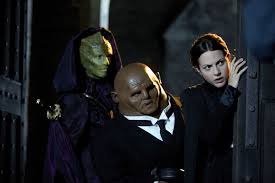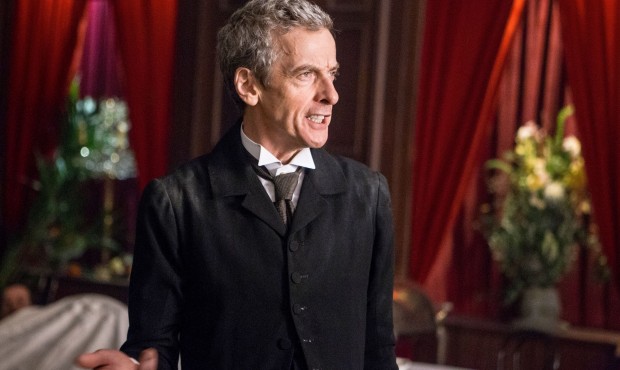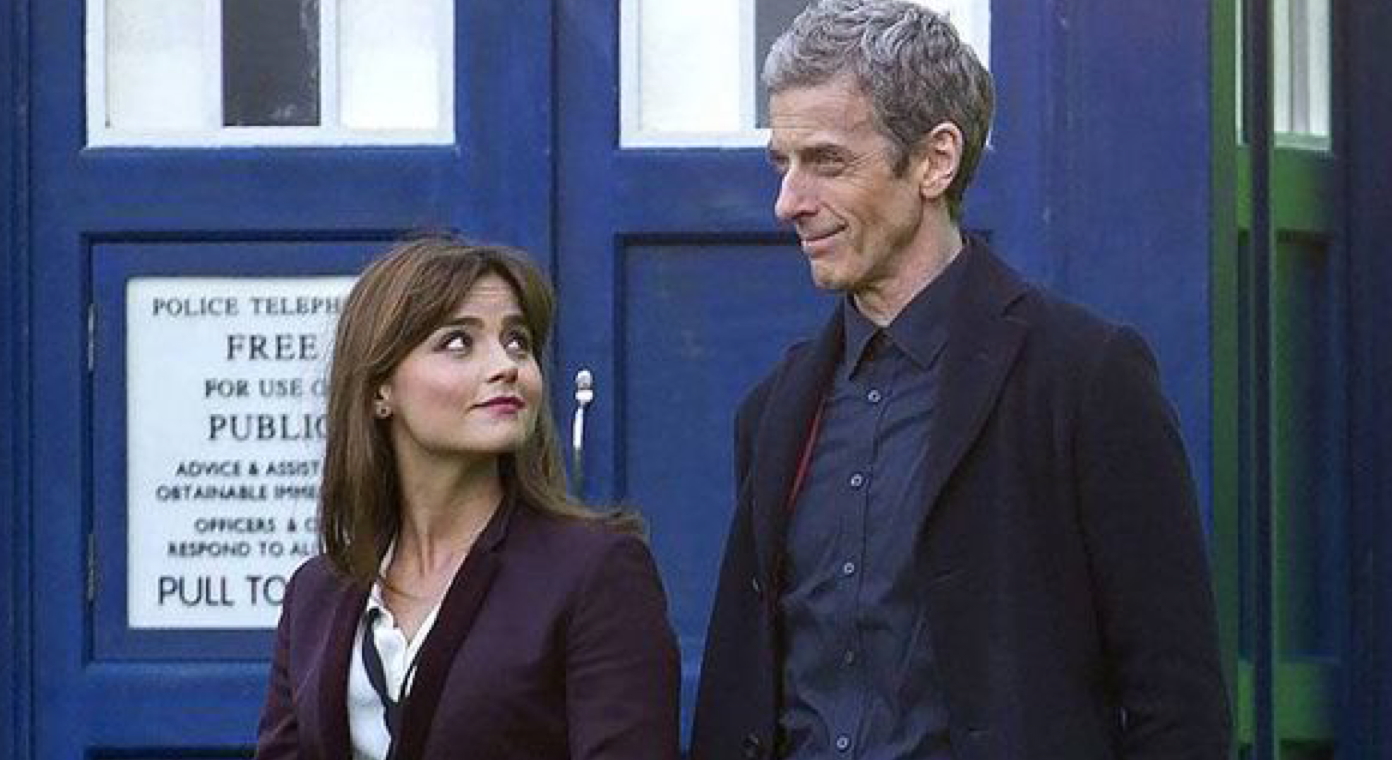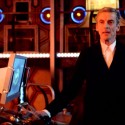I’ve never fallen in love with The Doctor as quickly as I did with Peter Capaldi. There were so many psychological themes in the first episode of Season 8, Deep Breath, that I felt instantly connected to him and found him extremely relatable. Below is my review of the episode from a psychological standpoint. WARNING: CONTAINS MAJOR SPOILERS, CLICK TO READ MORE IF YOU DARE

The episode opens with an ancient dinosaur wandering around the streets of Victorian London, naturally, why wouldn’t it be? It is Doctor Who, after all. We learn afterward that the poor thing had swallowed the TARDIS and was choking. Later, as The Doctor translates what the dinosaur is saying, we learn that she is lonely. She states that the world has changed and that everything is gray. This appears to be parallel to what The Doctor feels and he can certainly relate. As he runs to comfort her, risking his own life and health, while still coping with the aftermath of regeneration, he is devastated to see her destroyed. However, he immediately puts on his Sherlock Holmes hat and decides to investigate “this case” by seeing if there were “any similar murders.”

Clara, thrown off by The Doctor’s new face, seeks guidance from Vastra and Jenny, an inter-species same-sex married couple. Vastra reminds Clara that The Doctor is actually 2,000 years old and has primarily been putting on a young face to impress her because of what society wants to see.
Vastra to Clara: “He trusted you, are you judging him?”
I thought this was a brilliant way to bring up some of the criticisms voiced by some of the Doctor Who fans, who objected to Capaldi playing The Doctor, on the grounds that he is “old”. Vastra explains further that she puts on her veil to cover up her “disfigurement” because of people’s expectations, essentially alluding to how some people cannot accept people (or possibly characters) who are not representing the majority.
Clara: “When did you stop wearing the veil?
Vastra: “When you stopped seeing it”
I felt that this exchange was especially powerful in promoting acceptance and tolerance. Recently, researchers in Italy found that books like Harry Potter can be helpful in reducing prejudice and promoting acceptance since the books have a diversity of characters and demonstrate the downfalls of discrimination. I would imagine that a show, such as Doctor Who, in particular, an episode like this one, which discussed these issues explicitly, would probably be extremely beneficial in promoting empathy and acceptance.
Sometime after the exchange with Vastra, Clara receives a cryptic message in the newspaper and meets The Doctor at a strange restaurant, which turns out to be a front for a slaughterhouse, where clockwork droids steal and attempt to use human organs, in order to possibly become human themselves, and in hopes of finding “the promised land.” The only way the droids could be stopped was if the leader droid, The Half Faced Man, was destroyed. It was here that The Doctor and the Half Faced Man shared a small experience of common humanity, where the droid stated that he was not human, to which The Doctor replied, “neither am I.” To me, this moment conveyed the distress that they both felt as they both wished to be human though for different reasons. It is also at this moment that the paradox became apparent. Since the Half Faced Man had to be destroyed in order to save Clara, Vastra, Jenny, and Strax (along with the rest of humanity) from having their organs removed, the adversaries were presented with two difficult choices – either The Doctor had to take a step against his humanitarian values and kill the Half Faced Man in order to save his friends, or the droid had to go against his survival instinct and commit suicide. The Half Faced Man attempts to convince The Doctor to sacrifice the humans, after all, they’re just small things, to which The Doctor responds: ” Those people down there – they’re never small to me. Don’t make assumptions about how far I will go to protect them…”

It is not clear whether the half-faced robot jumped to his death or was pushed by The Doctor, but one thing is clear – The Doctor was prepared to do whatever it takes to protect the people of Earth, as he always does, that’s why he calls himself The Doctor. This is a promise we learn about in the 50th Anniversary Special, one that he’s certainly fulfilled, even when sick or tired.
One very special moment took place in the very end of the episode. The Doctor, the very Doctor who is always there to save the people of Earth and bring hope wherever he goes, this Doctor showed his vulnerable side. He showed that just like us, humans, he too needs unconditional support and acceptance, he too feels scared, and he too is scared of changes. Of course, we have known about that last bit for a while, however, this episode, in my opinion, made him seem more human than he ever seemed before: as Clara prepares to leave him because she cannot stand the fact that he has changed, The Doctor pulls out one last card – a call from his previous self, asking Clara to be there for his next regeneration because “he is more scared than you can imagine right now, and he needs you.”
This scene, other than being a complete tearjerker for me, reminded me of what sometimes happens when active duty service members return from deployment. Deployments, in particular, combat deployments, often change people, causing the deployed men and women to return home feeling and sometimes even looking differently compared to their pre-deployment self. Sometimes the gruff exterior or the behavior that might come across as aggressive might be the very sign that the person is scared and is in need of love, acceptance, and understanding. Wouldn’t it be great if the loved ones of the service member could receive a similar message from the past, reminding them who that person really is and what they need?
Throughout our life we go through countless changes, we are shaped and affected by our environment, our genes, and our experiences. We might age, we might change some of our habits but deep inside we are still the same person. This is what The Doctor was trying to convey to Clara, also reminding her to stay in the present moment, be mindful of who he is, asking her to really take a look and see the being in front of her, “You can’t see me, can you? You look at me and you can’t see me. Do you have any idea what that’s like? I’m not on the phone. I’m right here. Standing in front of you. Please. Just… Just see me.” And with these simple words The Doctor is able to convey exactly what he needs – acceptance, eliciting just that from his companion.

This episode is now one of my favorites due to the richness of its psychological themes and development. I feel as if the Doctor has let the audience in a little more, showing just how much hurt his two hearts can feel. The episode was also full of mystery and unanswered questions. For example, throughout the episode The Doctor appears to be having déjà vu, he appears to have bits of memory that are trying to come back but its is unclear what the memories actually are, perhaps a possible tie in with “The Girl in the Fireplace”? In addition, he appears to think that he has chosen the present face for a reason but is unable to figure out what the reason is. Is this a possible tie-in with “The Fires of Pompeii” or something completely different? Finally, at the end of the episode, we find out that the half-faced droid that was killed (or committed suicide) ended up in a kind of “promised land,” where we meet Missy, the guardian of this land, who seems to believe that The Doctor is her boyfriend. While it appears that Missy might be delusional, she also presents with some antisocial-personality disorder-like behaviors and maniacal facial expressions, however, we do not have enough information at this point to really look at this further. The big question is, who is Missy? One possible idea is that she might be a new incarnation of The Master, but that is yet to be seen.

Overall, I thought that the episode was amazing, feeding into the viewer’s empathy networks through The Doctor’s vulnerability and piquing our interests through some more unresolved clues. I’m excited to see what more this season will bring and am thrilled to have Capaldi as the new Doctor.
